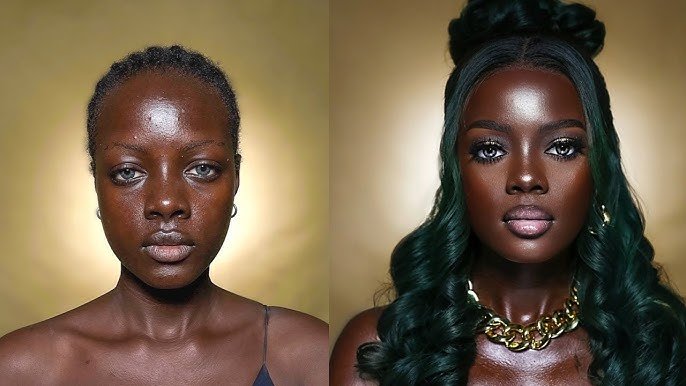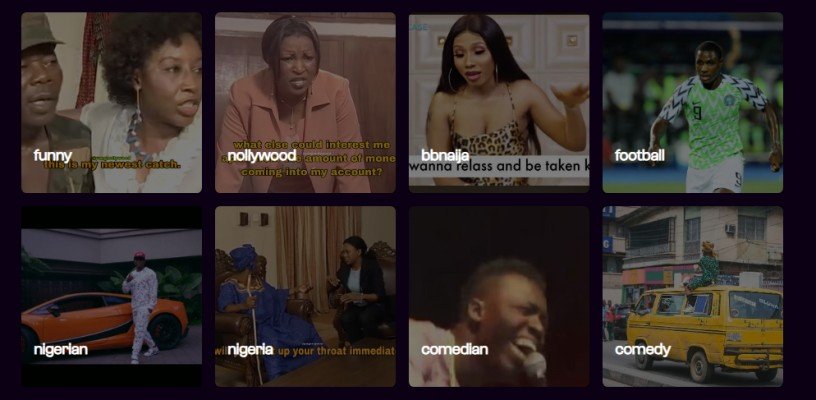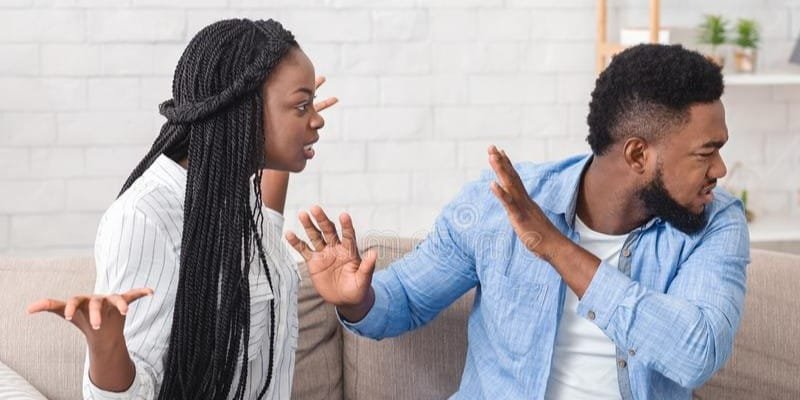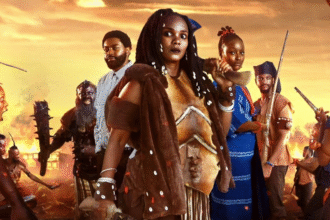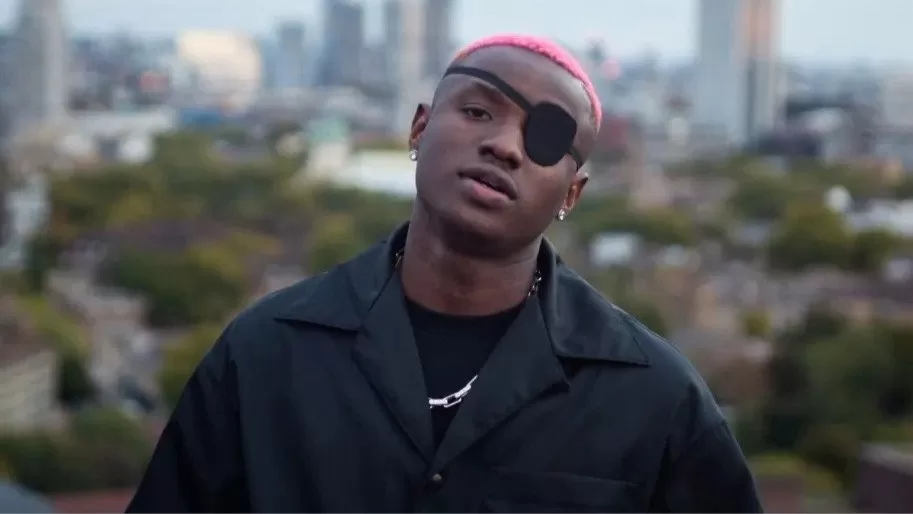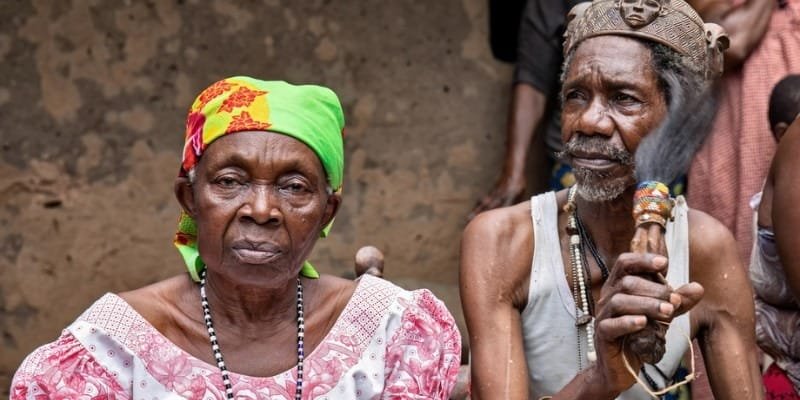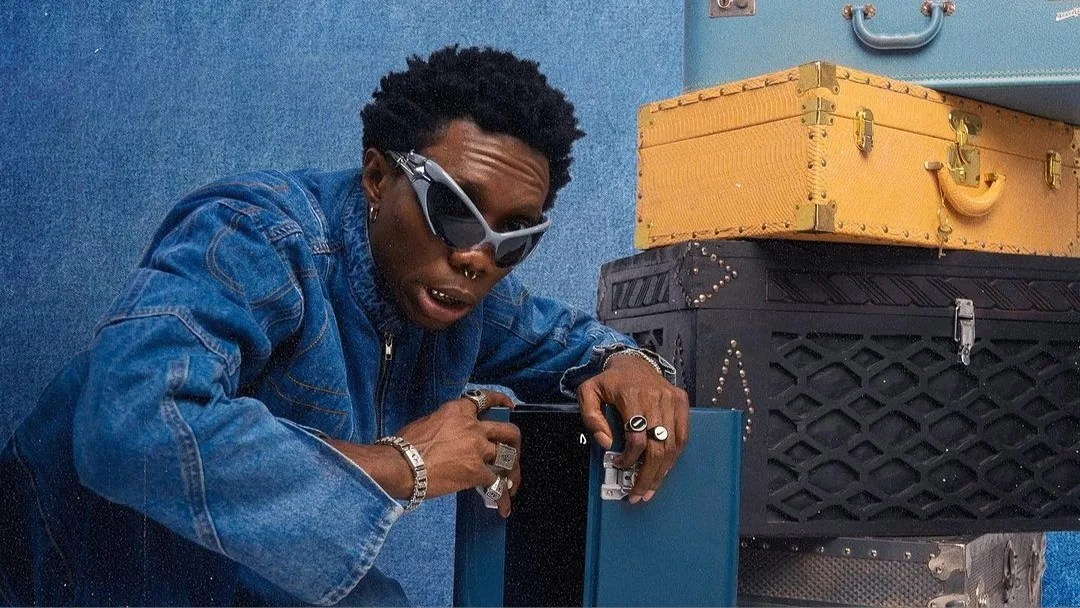DarkNaija (also written as Dark Naija) is more than a hashtag—it’s a movement celebrating melanin-rich skin and fighting colourism in Nigeria. In a country where 77% of women use skin-lightening products (WHO, 2011), DarkNaija represents dark-skinned Nigerians reclaiming their beauty and rejecting colonial standards that equate lighter skin with worth.
This guide explores the DarkNaija movement, colourism’s impact in Nigeria, and how we can celebrate natural beauty across all shades.
What is DarkNaija?
DarkNaija celebrates dark-skinned Nigerians and challenges colourism—the discrimination based on skin tone within the same race. It’s part of Nigeria’s Melanin Movement, affirming that deep, rich skin tones are beautiful and worthy of celebration.
The movement uses social media, art, and advocacy to push back against colonial beauty standards that privilege lighter skin, creating space for dark-skinned Nigerians to feel proud of their natural appearance.
The Reality of Colourism in Nigeria
Nigeria’s Skin Bleaching Crisis
The statistics reveal a deep problem:
- 77% of Nigerian women use skin-lightening products regularly
- 76 million Nigerians engage in skin bleaching
- Nigeria has the world’s highest skin bleaching rate
- The global skin-lightening industry is worth $23 billion
These numbers reflect a belief that lighter skin equals beauty, success, and desirability—a harmful colonial legacy.
How Colourism Manifests
In Nigeria, colourism shows up as:
- Employment: Lighter-skinned people favored in hiring
- Media: Nollywood predominantly features light-skinned actors
- Dating: Men openly prefer lighter-skinned partners
- Education: Teachers unconsciously favor lighter students
- Family: Darker children sometimes valued less
Colonial Roots
During British colonial rule, a racial hierarchy placed whites above blacks, creating beliefs that:
- European features = beauty and intelligence
- African features = inferiority
- Lighter skin = closer to whiteness, therefore “better”
These colonial standards remain embedded in Nigerian society through media, advertising, and generational attitudes.
The Psychological Toll
Colorism causes real harm:
- Low self-esteem in dark-skinned children
- Internalized racism and self-hatred
- Anxiety and depression from discrimination
- Body image issues and feeling “too dark”
- Social exclusion in dating and opportunities
Celebrating Dark Skin Beauty
The Power of Melanin
Dark skin isn’t just beautiful—it’s scientifically remarkable:
Natural Benefits:
- UV protection from harmful sun rays
- Slower aging with fewer wrinkles
- Natural glow without artificial enhancement
- Evolutionary advantage perfected over millennia
Diverse Shades of Nigerian Beauty
Nigeria’s ethnic diversity creates a spectrum of beautiful dark tones:
- Deep ebony (Edo, Ijaw communities)
- Rich chocolate (Yoruba, Hausa, Igbo)
- Warm umber and golden brown
All shades are beautiful. DarkNaija celebrates every melanin-rich tone.
The Melanin Movement in Nigeria
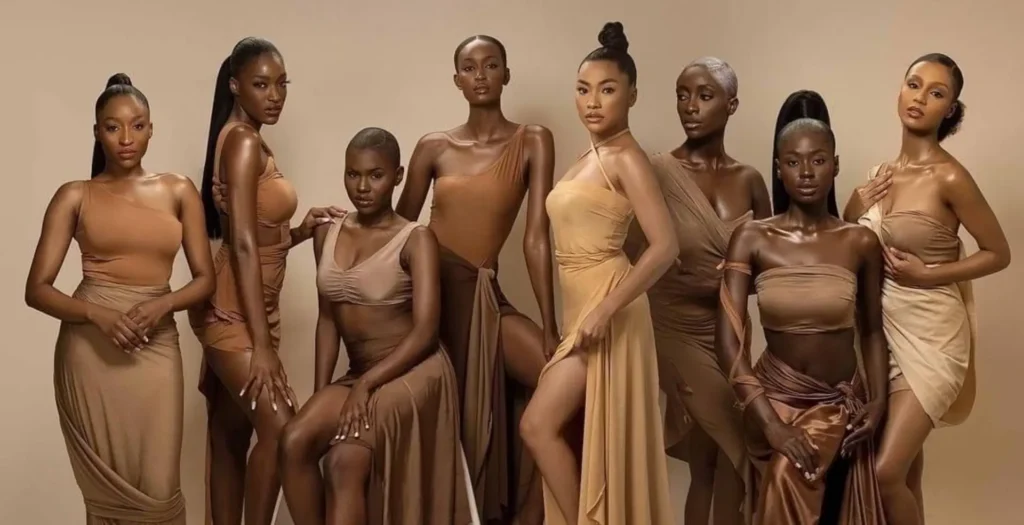
What is the Melanin Movement?
A grassroots campaign celebrating dark skin with core messages:
- “Black is Beautiful” – Dark skin is inherently attractive
- “Melanin Poppin'” – Celebrating deep skin tones
- “Natural Beauty” – Rejecting artificial lightening
- “Self-Love” – Building confidence naturally
Social Media Impact
Platforms driving change:
Instagram/TikTok:
- Hashtags: #DarkNaija, #MelaninNigeria, #BlackIsBeautiful
- Unfiltered dark skin celebration
- Educational content about colorism
- Community building and support
Twitter/X & Facebook:
- Discussions about colorism experiences
- Calling out discrimination
- Support groups for dark-skinned individuals
- Advocacy for better representation
The Dangers of Skin Bleaching
Serious Health Risks
Bleaching products contain dangerous ingredients:
Common Chemicals:
- Hydroquinone – Causes severe skin damage
- Mercury – Leads to kidney failure and brain damage
- Corticosteroids – Creates thin, fragile skin
Health Consequences:
- Kidney and liver failure
- Skin cancer from reduced melanin
- Permanent darkening (ochronosis)
- Severe infections and poor wound healing
- Premature aging and stretch marks
- Abnormal odor and excessive sweating
The FDA banned bleaching products in 2006. Ghana, Ivory Coast, and Rwanda banned all whitening products.
Financial & Psychological Cost
- ₦20,000 – ₦100,000+ monthly on bleaching products
- Money that could support education or business
- Addiction to products and anxiety about natural color returning
- Damaged self-esteem and body image
How to Love Your Dark Skin
@blxckwomxn Her beauty, her skin and her confidence are off the charts! #blackwomen #blackmodel #beauty #blackbeauty #swimwear #bikini #bikinimodel #summerbody ♬ Kanea – Kay Brothers & K Junior & Kelvin Kay
Building Confidence
Practical steps:
- Challenge Negative Thoughts
- Replace “I’m too dark” with “My dark skin is beautiful”
- Recognize colorism as colonial brainwashing
- Curate Your Media
- Follow dark-skinned influencers
- Unfollow accounts triggering insecurity
- Consume content celebrating diversity
- Find Community
- Connect with other dark-skinned individuals
- Join Melanin Movement groups online
- Build supportive friendships
- Practice Affirmations
- “My melanin is a gift”
- “I am beautiful exactly as I am”
- “I reject colonial beauty standards”
Healthy Skincare
Goals without bleaching:
- Even tone naturally
- Hydrated, glowing skin
- Sun protection (dark skin needs it too)
Simple Routine:
- Gentle cleanser morning/night
- Vitamin C serum for natural brightness
- Moisturizer with SPF 30+
- Body lotion for even skin
AVOID: Hydroquinone, mercury, harsh bleaching soaps USE: Natural oils, shea butter, niacinamide
Supporting the DarkNaija Movement
For Dark-Skinned Individuals
Your action steps:
- Embrace your natural skin—stop or don’t start bleaching
- Share your story to help others
- Use movement hashtags and engage
- Educate others about colorism
- Be visible—your presence matters
For Allies (All Skin Tones)
How you can help:
- Check Your Biases
- Do you favor lighter-skinned people unconsciously?
- Do you participate in colorist jokes?
- Amplify Dark-Skinned Voices
- Share content from dark-skinned creators
- Recommend dark-skinned people for opportunities
- Challenge Colorism
- Call out colorist comments from family/friends
- Question why ads only feature light-skinned models
- Refuse to participate in skin tone ranking
- Demand Representation
- Support diverse media
- Boycott brands with colorist advertising
For Parents
Protect dark-skinned children:
- Explicitly tell them their skin is beautiful
- Provide dark-skinned dolls and books
- Challenge relatives’ colorist remarks immediately
- Teach them about colorism so they recognize it
- Build confidence before society attacks it
The Future of Beauty in Nigeria
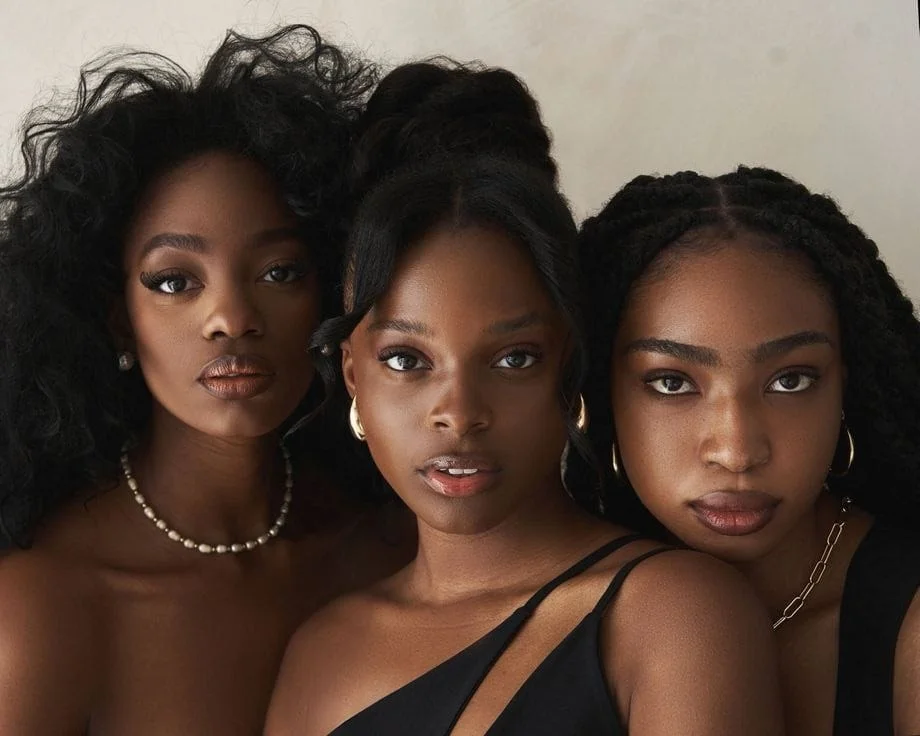
Signs of Progress
- More dark-skinned models in advertising
- Nollywood slowly diversifying casting
- Government banning harmful bleaching chemicals
- Growing Melanin Movement visibility
- Younger generation rejecting colorism
The Vision
A Nigeria where:
- All shades are celebrated equally
- Beauty is defined by health and confidence, not color
- Children grow up loving their natural appearance
- Media represents full spectrum of Nigerian beauty
- Economic opportunities don’t depend on skin tone
This future is possible. DarkNaija is building it.
Frequently Asked Questions
What does DarkNaija mean?
DarkNaija celebrates dark-skinned Nigerians and the Melanin Movement. “Dark” refers to melanin-rich, deep skin tones, while “Naija” is slang for Nigeria. DarkNaija represents pride in natural dark skin, resistance against colorism, and affirmation that Black Nigerian beauty deserves celebration through social media, art, and advocacy.
Why is colorism such a big problem in Nigeria?
Colorism stems from colonial-era racial hierarchies placing European features above African ones, creating beliefs that lighter skin equals beauty and worth. Today, 77% of Nigerian women use skin-lightening products—the highest rate globally. Colorism affects employment, media representation, dating, and self-esteem, persisting through media reinforcement, family attitudes, and economic incentives.
Is skin bleaching really that dangerous?
Yes. Ingredients like hydroquinone, mercury, and corticosteroids cause kidney failure, liver damage, skin cancer, permanent darkening, severe infections, and premature aging. The U.S. FDA banned bleaching products in 2006. Ghana, Ivory Coast, and Rwanda banned all whitening products. Beyond physical harm, bleaching causes psychological damage and financial strain.
How can I love my dark skin in a colorist society?
Challenge negative thoughts by recognizing colorism as colonial brainwashing, follow dark-skinned influencers, connect with supportive communities, practice daily affirmations like “My dark skin is beautiful,” educate yourself about colorism’s origins, focus on healthy skincare that enhances rather than lightens, and share your journey to help others.
What can light-skinned Nigerians do to help?
Examine your own biases, never participate in colorist jokes, amplify dark-skinned voices, call out colorism when witnessed, support dark-skinned businesses, question why events/media only feature light skin, refuse roles perpetuating colorism, teach children to celebrate all skin tones, and use privilege to create space for dark-skinned individuals.
How do I protect dark-skinned children from colorism?
Explicitly and frequently tell them their skin is beautiful, provide dark-skinned dolls and books, never make negative comments about skin tone, immediately challenge relatives’ colorist remarks, teach them about colorism, build their confidence before society attacks it, believe their discrimination experiences, and create home environments celebrating natural beauty.
What’s the difference between colorism and racism?
Racism is discrimination between different races (whites discriminating against Blacks). Colorism is discrimination based on skin tone within the same race (lighter-skinned Blacks receiving preferential treatment over darker-skinned Blacks). In Nigeria, colorism occurs when dark-skinned Nigerians face discrimination from other Nigerians based solely on darker skin.
Can dark skin ever become the beauty standard in Nigeria?
Yes. Beauty standards are socially constructed, not permanent. Before colonization, African societies had diverse standards not centered on skin tone. Change requires consistent media representation, economic shifts away from bleaching industry, education about colorism, celebrities celebrating dark skin, government regulation, and generational attitude changes. Progress is visible in younger Nigerians embracing natural dark skin.
What is similar to Dark Naija?
Similar movements include the global Black is Beautiful movement (1960s), #MelaninPoppin hashtag, Dark Skin Redefined (U.S.), and Pan-African beauty movements across Ghana, Kenya, and South Africa. In Nigeria: #NaturalHairMovement, #TeamMelanin campaigns, and influencer-led initiatives promoting self-love and rejecting Eurocentric beauty standards.
What does “Naija” mean in Nigeria?
Naija is Nigerian slang for Nigeria, derived from the country’s pronunciation. It became popular in the 1990s-2000s through Nigerian music (Afrobeats), social media, and youth culture. Used in phrases like “Naija boy/girl” (Nigerian person), “Naija jollof” (Nigerian jollof rice), or “Proud to be Naija.” It’s a cultural identifier representing Nigerian pride and identity.
What is Naija Dark Telegram?
Naija Dark Telegram refers to Telegram channels that may claim to share dark-skinned Nigerian content, but exercise caution. Some channels misuse this name to distribute inappropriate content rather than celebrating dark skin beauty. The DarkNaija movement focuses on positive melanin celebration and anti-colorism advocacy. For legitimate communities, seek verified Instagram accounts, Facebook Melanin Movement groups, or official organizations.
What is “Dark Night Naija”?
Dark Night Naija could refer to Nigerian nightlife events, creative projects, or misused terms. If you’re searching for content celebrating dark-skinned Nigerians, the proper term is “DarkNaija” or “Dark Skin Naija,” focusing on melanin celebration and anti-colorism. The authentic Melanin Movement centers on empowerment, education, and celebrating natural Nigerian beauty.
What is “Dark Web Naija”?
Dark Web Naija refers to Nigerian activities on the dark web—the encrypted internet requiring special browsers. This is completely different from “DarkNaija” (melanin celebration). The dark web is associated with cybercrime and illegal activities. Important: Dark Web Naija has nothing to do with celebrating dark-skinned Nigerians. For the positive DarkNaija movement, focus on Instagram, TikTok, and Twitter.
Conclusion
DarkNaija isn’t just a hashtag—it’s a declaration that dark-skinned Nigerians are beautiful, valuable, and worthy exactly as they are. Every person who refuses to bleach, every parent affirming their child’s natural beauty, every ally challenging colorist comments—they’re dismantling a harmful colonial system.
The truth colourism tries to hide:
- Dark skin is beautiful because of its darkness, not despite it
- Melanin is powerful, protective, and precious
- Colonial beauty standards have no place in modern Nigeria
- Your worth has nothing to do with your skin tone
For dark-skinned Nigerians: You don’t need to change, lighten, or apologize. You are gorgeous exactly as you are. Your visibility and self-love matter.
For everyone: We all have a role in creating a Nigeria where every shade thrives. The future isn’t about replacing one standard with another—it’s about celebrating everyone.
DarkNaija is a homecoming to natural beauty, African pride, and self-love.







